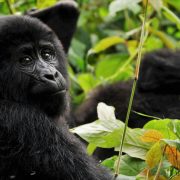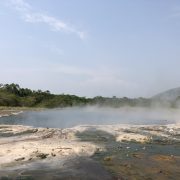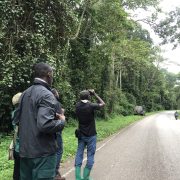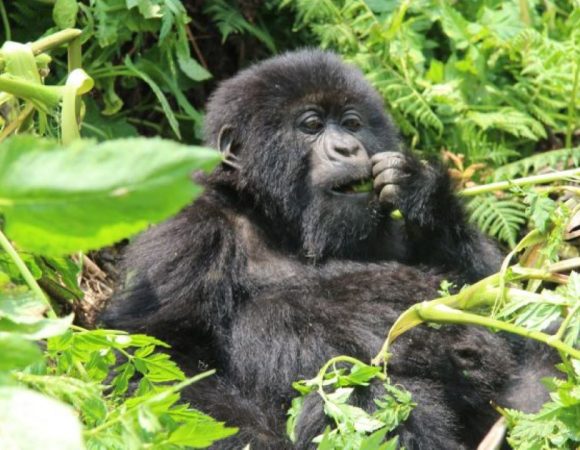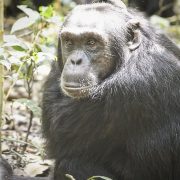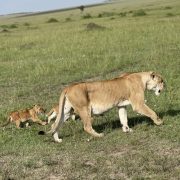
Hadada Ibis | Loudest Bird in Africa
The Hadada Ibis is known as the loudest bird in Africa as its calls are often noisy and loud. This beautiful and large bird is an ibis native to Sub-Saharan Africa and is commonly seen foraging in the diverse habitats of Africa. The Hadada Ibis can be seen while on safari in East Africa or while on a bird watching in Uganda. It is one of the most commonly sighted birds, you might come across it even while at your safari lodge. The Hadada Ibis feeds throughout the day and in the morning or evening hours it tends to feed on ground hence why you will often see it in Uganda.
The bird tends to receive a negative light in the eyes of local Ugandans who are usually disturbed by its loud noise but we think that it’s distinctive call is what makes the Hadada Ibis a unique and beautiful bird. Hadada Ibis live near wetlands in Uganda or close to humans and are often seen foraging in their gardens or compounds, sometimes the birds are seen perched on fruit trees like avocado trees where they like to hangout and catch a break as they figure out their next meal.
The Hadada Ibis has beautiful plumage with a strong long beak which the bird uses to pick insects that are far down in the soil. As you watch the bird feed you will notice that it uses its strong beak to dive into the soil and pick out insects. Here is our video showing a Hadada Ibis feeding on a rainy afternoon in our compound;
The Hadada Ibis belongs to the bird family Threskiornithidae and is a non-migratory specie tending to live in a specific environment only making nomadic movements in times when the area experiences drought. The birds live in habitats including open grasslands, savanna areas, gardens, wetlands and urban parks which are common in Uganda and East Africa making it a very common sighting while on a birding safari in Uganda, one is most likely to come across this beautiful large bird throughout the safari. With its beautiful plumage that consists of purple and brown sheen the Hadada Ibis is beautiful to watch and photograph. The bird also often stays in one place feeding so if you keep a reasonable distance you can actually have a long period of time watching it forage and fly around to the nearest tree often times to possibly rest then return to the ground once again to feed, everyone needs a short break from eating right!
Hadada Ibis Diet
This large bird’s diet consists of mainly insects which it often feeds on that’s why it is usually seen on the ground using its beak to pick food. It also feeds on small reptiles, worms, invertebrates and crustaceans. The birds usually tend to feed solo or in pairs and some rare occasions in groups.
Hadada Ibis Facts
Hadada Ibis males and females resemble in appearance and plumage with a narrow, white stripe across their cheeks. The birds are tactile feeders, monogamous in nature and solitary nesters building basket shaped nests in trees or bushes. The nests are usually made up of sticks, grass and twigs and the birds gather these nesting materials from their surrounding environments. The Hadada Ibis female lays one to five eggs per patch and the incubation period for the eggs is 25-30 days, males and females take turns incubating the eggs. Once the eggs hatch the chicks are born and the first two months are spent closely with the mother after which they become independent.
Where can I see the Hadada Ibis in Africa ?
Africa has provided amazing habitats that support these amazing birds and the best places to see these birds in Africa include;
- Queen Elizabeth National Park, Uganda
- Murchison Falls National Park, Uganda
- Fort Portal town in Uganda
- Entebbe Botanical Gardens, Uganda
- Masai Mara National Reserve in Kenya
- Serengeti National Park in Tanzania
- Tarangire National Park, Tanzania
The Hadada Ibis is widely spread across East Africa and the bird has been classified as a “species of less concern “ by the International Union for Conservation of Nature (IUCN), a popular world conservation organization.

